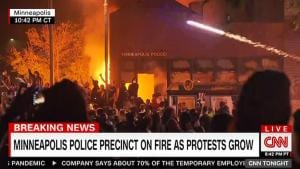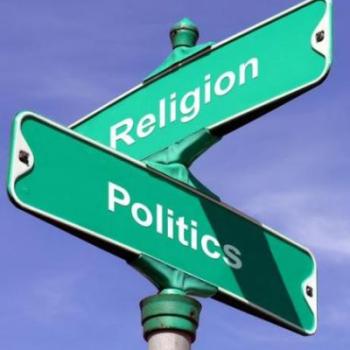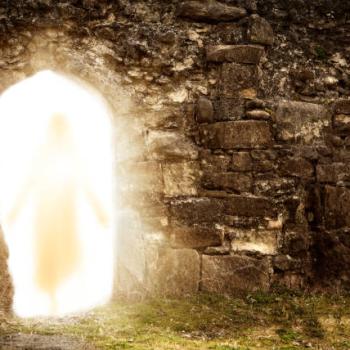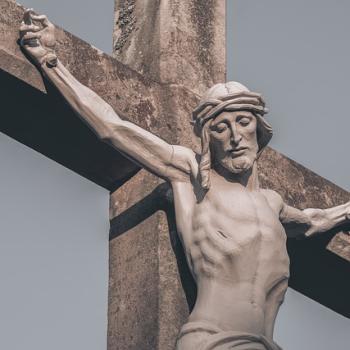Do you sympathize with owners of looted stores? I do … but not too much.

Friends and relatives are disputing back and forth on Facebook about the now-alleged murder and subsequent riots in Minneapolis. They include a son and daughter-in-law who live a mile from the site of the police killing. Others live far from my home state of Minnesota. Some express sympathy for the rioters and, of course, George Floyd and his family. They recall many other incidents of racism by police and others and call for systemic change. Others demonstrate sympathy with the owners of establishments looted, trashed, and burned.
More to tell on this story. See post coming soon on “Protesters and Rioters: In Minneapolis There’s a Big Difference.”
As far as I know, with the exception of the police substation that rioters attacked, the victims of the riots were not racist. They didn’t deserve what they got. So I sympathize with them. But I ask those who turn that sympathy into condemnation of the rioters to take out a crystal ball and look into the future. What do they see for the black citizens of Minneapolis or any city in this country? What do they see for the now-distressed store owners?
The future: Stores again. And racism too?
I sympathize with a person who loses a business in a riot about as much as I do with anyone whose business or home is destroyed for any reason. Tough times lie ahead for that person. I also see help that comes from neighbors, insurance companies, even governments if it was a natural or other disaster. Life will return to normal for that person within a year or two. I also see – but I hope I’m wrong – life returning to normal for people of color in Minneapolis.
What does “normal” mean in the two cases. If you’re white, normal means, in general, you get respect and decent treatment. You can expect that police will be kind to you, as they were to the white CNN reporter covering the Minneapolis riots. Or like the treatment I have gotten from police the several times I was caught speeding. I don’t recall being afraid, at least not for my life, when an officer walked up and asked for my drivers’ license.
Racism across the US
If you’re a black reporter for CNN, you get arrested by Minneapolis police – and a real nice apology from the mayor. A black or any person of color might remember lots of incidents of racism, unconscious and deliberate. Maybe incidents like these:
- A black woman lives in an upscale neighborhood. She drives her car out of her garage and down the alley. A white police officer stops her and says, “This is an alley, not a through street and you’re not allowed to drive through here.” He can’t imagine that she lives there because she’s black. (I recently read this story in a Catholic magazine that I can’t locate now.
- A black Fed Ex driver delivers a package in a gated community. As he approaches the gate, two white residents stop him and demand to know his name and his business there. (Source: Time Magazine)
- A black pedestrian walks on the shoulder of the street to avoid sidewalk construction in Edina, Minnesota. A white police officer gives him a citation for walking in the road and arrests him during a confrontation, seven minutes of which were recorded by cellphone. Bystanders plead with the officer, “He’s scared, sir. It’s scary.” And “You could have showed him where to walk really kindly.” Later a city council member apologized: “I am sorry that you were treated the way you were.” Source: Washington Post)
- An Asian-American man at a Dallas/Fort Worth area voting station takes a sip of water and begins to choke. A white woman casts a racial slur at him and hectors him about “all you Asian people” spreading coronavirus. A police officer approaches him in the parking lot after the vote. The woman had claimed that she felt he was going to assault her. After talking to the man, the officer admonishes the woman and says she should thank the Asian-Ameerican for being a veteran who served three times in Iraq and Afghanistan. (Source: KUT, Austin’s NPR Station)
If only stories like these weren’t so easy to find, but they multiply everywhere alongside stories of people resisting such racism.
Ending racism. What works?
Evidence of racism in law enforcement isn’t only anecdotal. Stanford University researchers looked at 100 million traffic stops across the country from 2011 to 2017. They found that “black and Latino drivers were stopped more often than white drivers, based on less evidence of wrongdoing.” (Source: NBC News)
A common criticism of people who engage in rioting is, “If people want to end racism, they’re not going to get it that way.” There are two problems with that criticism. First, people are not trying to end racism “that way,” as if there were some plan behind the looting and burning. There are stories of outside agitators with some sort of agenda. But, frankly, all the necessary ingredients for a riot were present in Minneapolis itself. There’s no need to blame outsiders. Anger follows its own course without any plan or agenda.
The second problem is that the criticism isn’t necessarily true. I criticized the race riots of the 1960’s, thinking the movement for civil rights would suffer because of them. Somehow the opposite happened. And somehow, whether through fear or embarrassment or an awakened conscience, I hope that soon:
- There will be ongoing, mandatory training of police officers on sensitivity to race.
- Police departments will reexamine and revise use-of-force protocols.
- Law enforcement in general will become less punitive and more locally based.
- Police forces will resemble in color the communities they patrol.
- And, finally, men and women of conscience will find in police work the opportunity to serve all people equally.
Image credit: TMZ.com












